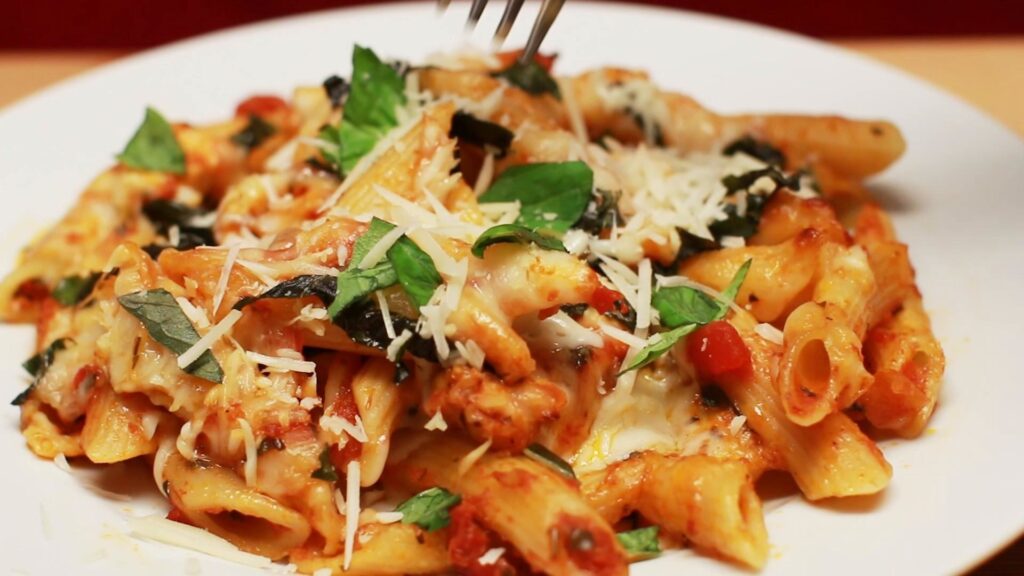Do you realize that your local supermarket has just a few days worth of food on the shelves? When you enter the store, you see aisle up aisle of product; from packaged cereal to shiny fruit and fresh meats. Some of it is packaged so high you can’t reach it without a ladder. It gives the impression that you will always be able to find as much thetastyworld.com as you could possibly want. The unfortunate truth is that impression is an illusion. If supplies were to stop flowing to that store, the shelves would be empty in just days. If the supply stopped due to a disaster that affected not only you, but your community, you could reasonably expect that supply to be gone within hours.
I urge you to take a few moments and ponder your life without food. How would you feel? how would you act? How long could you go on an empty stomach, or watch your children go for extended periods without food. For most North Americans, this is hard to imagine. Our entire lives we’ve seen food available everywhere we go, but again, this is just an illusion
Did you know that a ton of wheat was selling for about $105 in 2000. That wheat was selling for close to $500/ton in 2008. Prices fluctuate, but the long term trend is upward. This stands true for every food commodity available. There are a lot of factors around this, but the basic issue is that there is an ever increasing demand for a finite (and decreasing) food supply. We have been experiencing disastrous weather conditions that have crippled crop productions at at time when supplies are already low. We are also seeing fuel prices rising dramatically. This means that every food item delivered to your grocery store now costs more, and that extra cost will be passed on to you. The net result is less food available at much higher prices. You’ve probably noticed this while shopping. Your weekly food budget does not buy nearly as much as it did just a couple of years ago. How little do you think it will buy in just a few short years from now?
A food reserve is simply a stockpile of usable, nutritionally balanced, easily prepared food that you and your family use and replenish on a regular basis. It’s consumed regularly for your basic meals, and you continue to add to it on a regular schedule. Over time, you will find that you have amassed a good supply of extra food. If for some reason supplies become short and you are unable to restock, you now have a reserve of food available. You have just removed a huge level of stress and anxiety from your life. If there is a disaster, or you lose your job, or store shelves become bear, you no longer have to worry about finding food for your family. You can concentrate on other, more important matters. Trust me, in times of crisis, being able to face a situation with a full stomach will give you edge that others wont have. It’ s one of the reasons they say that “..an army moves on its’ stomach”
A well planned food reserve is NOT a couple boxes if Ramen noodles and containers of SPAM. Having shelves full of low quality, processed food that is packed with chemicals and preservatives is not going to help. It’s marginally acceptable if you need 2 or 3 days of supplies, but anything longer than that and you are just hurting yourself. It should also not be buckets of wheat and beans. That sounds healthy, but it takes a great deal of energy to prepare that into edible food, and even then, it will be bland and something that you can only stomach for a few days until it becomes boring and you are no longer able to eat.
It should be food that is tasty, nutritious and easily prepared. It must be something that you enjoy eating, because that is going to help you endure whatever situation you are facing. Dehydrated food is great for food reserves since it can be made with just water, and has a great taste. It is also easy to store due to it’s small size and packaging. Of course, the greatest benefit is the extended shelf life (up to 25 years with a good quality product).
Even canned food only really has a stable shelf life of a couple of years. After that, the can and food break down and can start to become dangerous to eat. You should also keep a supply of some sundry items like sugar, salt, spices and even wheat and beans to supplement. Just be sure to rotate the stock by using daily. Also, DON’T FORGET WATER. You need a supply for consumption, as well as for cooking and for hygiene.
You probably only have a few days worth of food in your house. If you lose power, the food in your fridge/freezer will have to be used in hours before it goes bad. You may be able to survive 3 days, but after that, you are going to start experiencing some problems. You should have at least 3 months worth of food. Six months is better and a year is great. It may sound like a lot, but remember, you are not getting it all in one day, you are building it up slowly. The effect on your budget will be negligible.
Of course, if you can afford it, I’d suggest that you buy 6 to 12 month supply right away. In perspective, the cost outlay would be small (6 months for just over $1000.00), and you would be immediately secure with your supply. I easily see multiple people spend in excess of this on a Saturday buying a TV and home theater system. I can assure you that it wont help them during any disaster.
By simply using $100 of you monthly food budget to build your food reserve, you are well on your way. Don’t forget, that money does buy you actual food you can eat at any time, so it’s not a lost investment.
A years supply of dehydrated food is actually quite small. It probably takes up the same amount of space as your washing machine. In fact, it could be easily stored under your bed if needed. I’m positive any one could find that amount of space in their residence, especially for such an important reason.
It’s funny that we spend countless thousands on auto insurance, life insurance, house insurance and even extended warranties on our TV’s, yet we refuse to invest anything on insuring our most important commodity; FOOD.


More Stories
Understanding Block Factory: Revolutionizing Digital Asset Management
Exploring the Rise of Silicone Sex Dolls: A Comprehensive Guide
Understanding IPTV: The Future of Television Entertainment